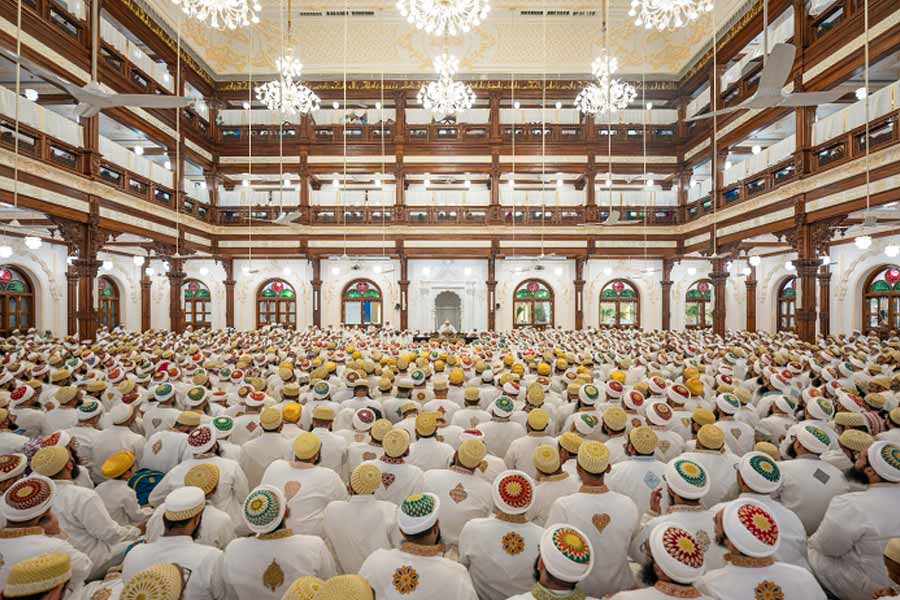The Bombay High Court on Tuesday dismissed a 2014 suit challenging the position and appointment of Syedna Mufaddal Saifuddin as the leader of the Dawoodi Bohra Community.
The court has "only decided on the issue of proof and not faith," a single bench of Justice Gautam Patel said and dismissed the suit initially filed by Khuzaima Qutbuddin soon after his brother and the then Syedna Mohammed Burhanuddin passed away in January 2014 at the age of 102.
Burhanuddin's second son Mufaddal Saifuddin then took over as the Syedna.
In 2016, after Qutbuddin passed away, his son Taher Fakhruddin took over the suit claiming his father had conferred the powers on him.
The suit sought the court to restrain Saifuddin from discharging his duties as Syedna.
Qutbuddin had in his suit claimed his brother Burhanuddin appointed him as the mazoon (second in command) and privately anointed him as his successor through a secret "nass" (conferment of succession), prior to the mazoon announcement on December 10, 1965.
Fakhruddin claimed that his father before dying conferred and appointed him for the position.
Justice Patel, while dismissing the suit, said, "I don't want any upheavals. I have kept the judgment as neutral as possible. I have only decided on the issue of proof and not faith." The Dawoodi Bohras are a religious denomination among Shia Muslims.
Traditionally a community of traders and entrepreneurs, it has more than 5 lakh members in India and over 10 lakh across the world.
The community's top religious leader is known as the Dai-al-Mutlaq (most senior).
As per faith and Dawoodi Bohra doctrine, a successor is appointed through "divine inspiration".
A "nass" can be conferred upon any deserving member of the community and not necessarily a family member of the current Dai, although the latter is often the practice.
The suit had sought the HC to restrain Saifuddin from acting as the Dai-al-Mutlaq.
It also sought an entry to Saifi Manzil, the house of the Syedna in Mumbai, alleging that Syedna Mufaddal Saifuddin had taken over the leadership role in a "fraudulent manner".
Qutbuddin claimed that after Burhanuddin became the new Dai-al-Mutlaq, taking over from his father Syedna Taher Saifuddin in 1965, he publicly appointed his half brother as the mazoon (second in command) and privately anointed him as his successor through a secret nass.
Burhanuddin asked him to keep the private nass a secret, Qutbuddin claimed. He maintained that he abided by the oath of secrecy given to him by the 52nd Dai till his death.
Syedna Saifuddin opposed the suit, claiming the nass of 1965 lacked witnesses and could not be accepted.
He claimed that as per the established and prevalent doctrines of the Dawoodi Bohra faith, nass could be changed and revoked.
As per the Syedna's claims, on June 4, 2011, the 52nd Dai conferred nass on Syedna Saifuddin in the presence of witnesses at the Bupa Cromwell Hospital in London, where he was admitted after suffering a stroke.
Except for the headline, this story has not been edited by The Telegraph Online staff and has been published from a syndicated feed.











